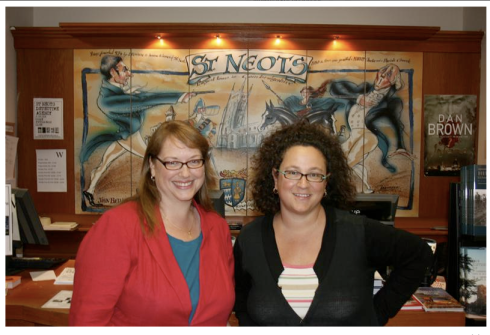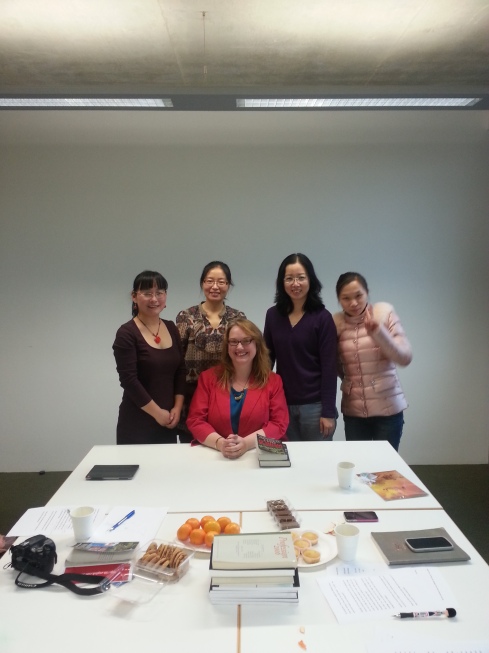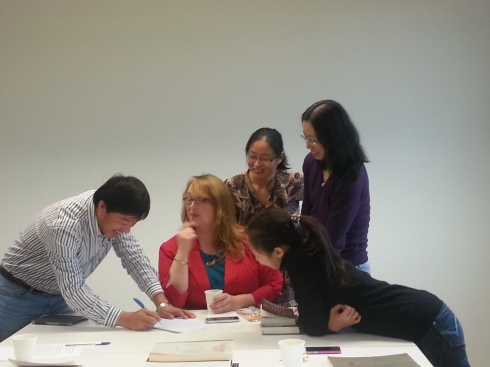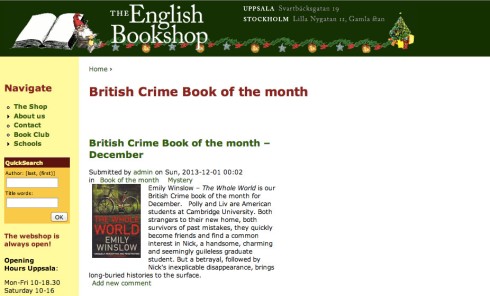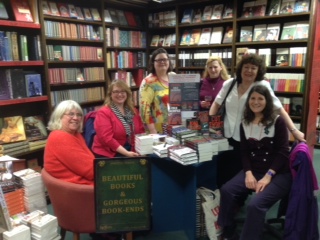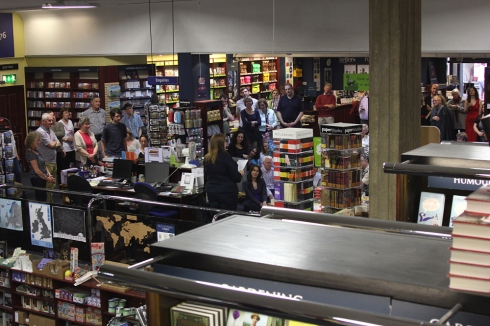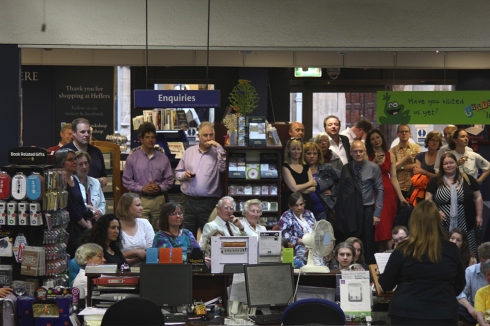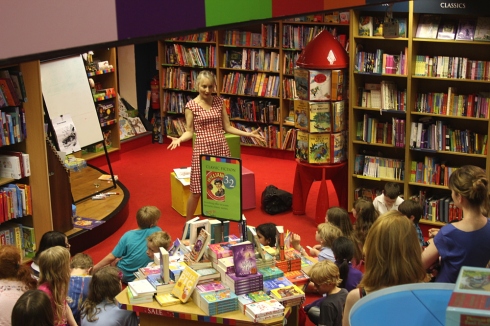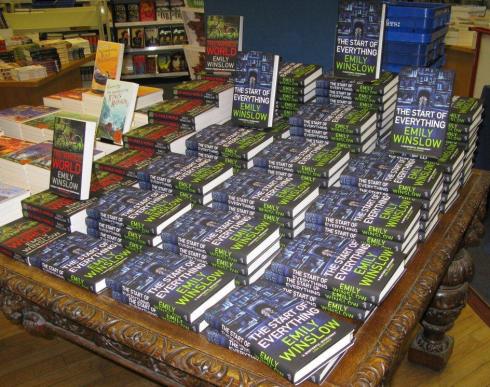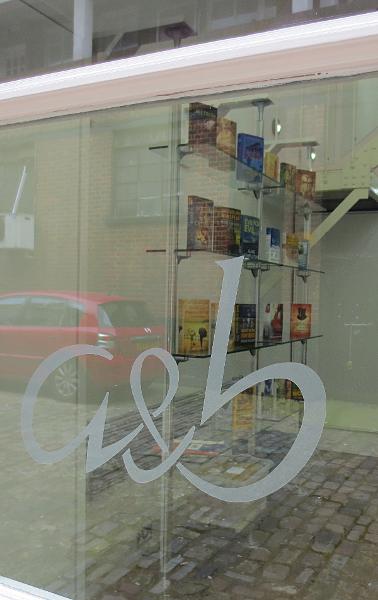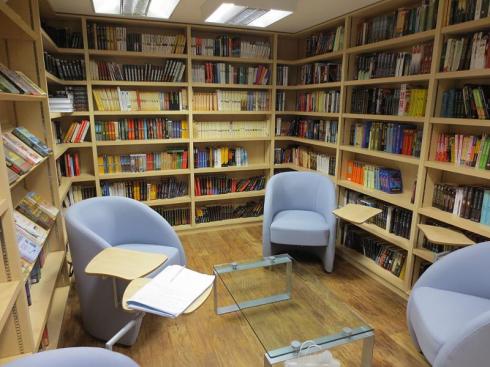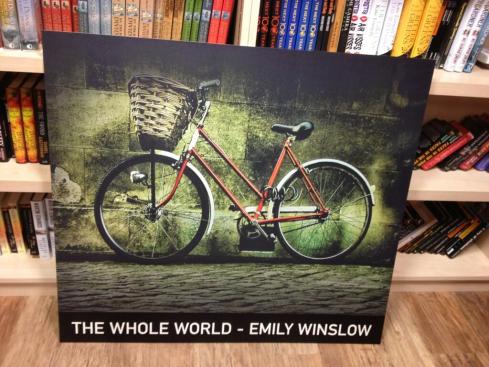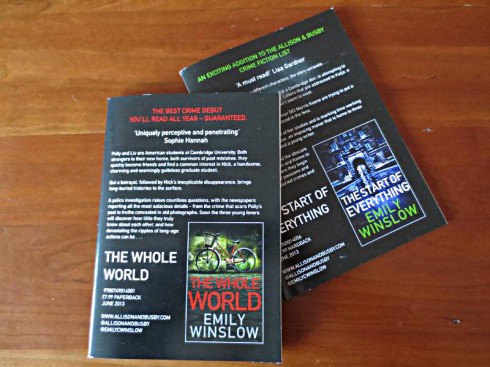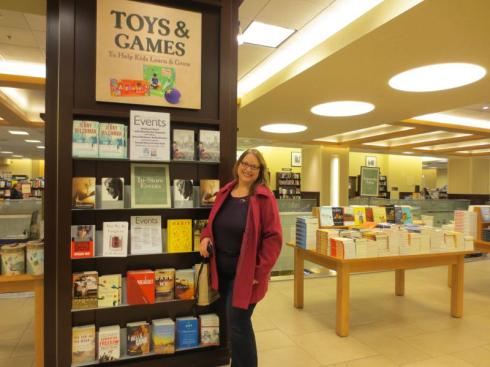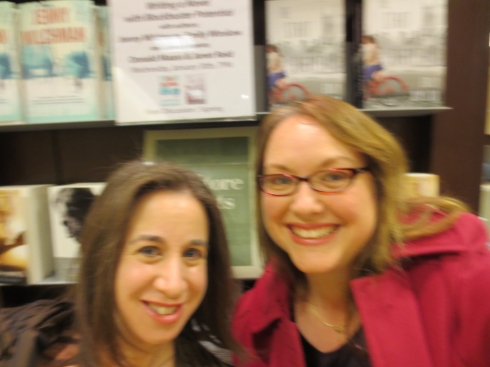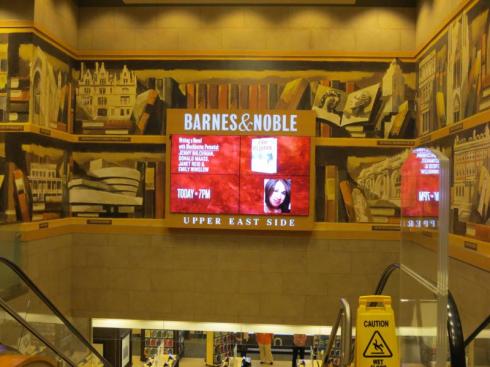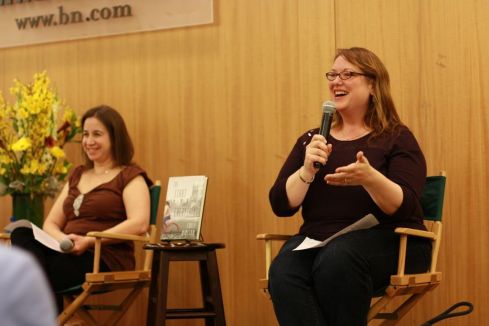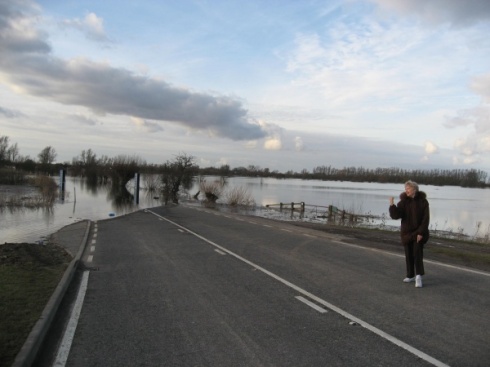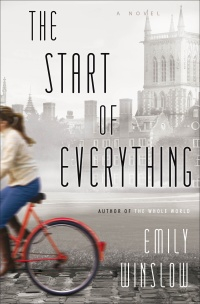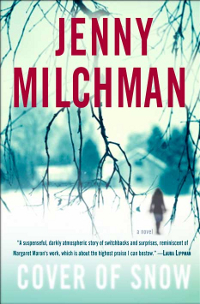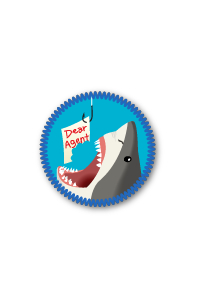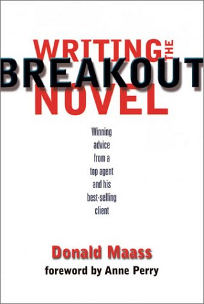I figured out a good “author outfit” a few months ago, and it’s been trotted out about a dozen times this autumn. Here’s what my peacock blue t-shirt and red blazer have been up to:
I’ve visited with several book clubs, which is always delightful (and usually includes tasty treats and/or flowers, which is very kind!), and did two events with dear friend Sophie Hannah, in St Neot’s and at the Ely Literary Festival. Both events, scheduled well in advance, happened to fall right after the exciting announcement that Sophie’s been given the go-ahead from Agatha Christie’s estate to write a new Poirot novel. Exciting!
As can be seen in my books, I adore Cambridge’s colleges, so it was a real treat to be invited to speak to the university’s “visiting scholars” at Corpus Christi College’s master’s lodge. My second book, The Start of Everything, is partly set at Corpus Christi, so it was especially fitting. What a lovely room!
Several of the visiting scholars from China (from Nanchang University, Zhejiang University, and Shanghai Lixin University of Commerce) asked to interview me. It was humbling to try to answer their insightful, thoughtful questions, and see their copies of my books bristling with post-its, and the margins full of notes.
That same week that I had the pleasure of chatting with the Chinese academics, an English-language bookshop in Sweden chose The Whole World as its “British Crime Fiction Book of the Month.” Makes me want to start sticking pretty pins in a world map on the wall.
Most recently, I joined in with Heffer’s bookshop’s “Christmas Chrime” quiz evening. The questions could only be answered by the attendees looking at the books of various crime authors or chatting with the authors themselves—good thing we were all there. Lovely to share the evening with Rebecca Tope, Kate Rhodes, Allison Bruce and others. (Thanks for author Leigh Russel for the pic.)
One of the nicest parts of the evening for me was running into two women who had taken a workshop I taught at Lucy Cavendish College two years ago. One of them recalled several things that I had taught and said how much they meant to her. That was really lovely.
Lastly, I must retract my endorsement of the Zebra pen. In a previous post, I said it was the best signing pen in the world. I take it back! Mine has started leaking. I fear my recent signatures are a bit messy!
I’m writing this post having just returned from a week in a student room at Churchill College. Close readers of The Whole World may recall that Churchill is the character Morris’ alma mater. I needed some solitude to work on structural revisions of book three, especially Morris’ point of view.
Now home with family to celebrate birthday, Christmas, and New Year’s. Happy holidays!

